|
KEEP THIS NEWSLETTER ALIVE! Shop Online at https://www.irishnation.com |

===========
IN THIS ISSUE
===========
=== News Snaps from Ireland
=== New Free Resources at the Site
=== Natural History Museum, Dublin
=== St. Patrick's Cathedral, Dublin
=== 'Grandma's Gramophone' – A Story by Michael Collins
=== Sullivan Family Honors Son of Ireland by Johnny Letlow
=== Youtube Videos of Irish Interest
=== Gaelic Phrases of the Month
=== Monthly Free Competition Result
Popular Articles from recent Newsletters:
National Museum of Art & History, Dublin
The Outsider - A Story by Michael Collins
The Life and Times of 'The Liberator' by Anthony Lynott
Dermot and Strongbow & the Invasion of Ireland
==========
FOREWORD
==========
|
Many thanks to your contributors Michael Collins and Johnny Letgow who have provided us with two very different stories for this months newsletter. Michael's story gives a glimpse into old Ireland while Johnny recalls the life of an American Civil War veteran. If you have a story or article to contribute please do send it in!
You can now get a brief daily update from Ireland for free by subscribing to our Ireland Blog at: https://www.ireland-information.com/blog/ Until next month, Michael |
PLEASE 'LIKE US' ON FACEBOOK!

P.S. Please DO FORWARD this Newsletter to a
friend or relative. If you have a website or Facebook
page or Blog (or whatever!) then you can help
us out by putting a link on it to our website:
www.ireland-information.com
Do tell your friends about us as this helps
to keep this newsletter free!
SEND US YOUR PHOTOS OF IRELAND
Got any decent holiday snaps of Ireland - we want them!!
The Information about Ireland Site is compiling a
library of photographs of Ireland and specifically all
of the towns and tourist sites of the country. Photos of
any castle, lake, river, mountain, building, town,
landscape, tourist attraction or historic site are sought.

These photos will be made freely available for anyone
to use in their blogs, school reports, articles,
websites, facebook pages or projects.
Please contact us from here: https://www.irishnation.com/cgi-bin/contactfront.cgi
and we will send you further information. All contributors
will be entered (and re-entered every month) into a monthly
draw for a family crest print for the name of their choosing.
WE NEED YOUR HELP - CONTRIBUTE!
Got something to say? Don't keep it to yourself!
Why don't you submit an article for inclusion
in the next edition? Go here for more information:
https://www.ireland-information.com/newsletter.htm
Do you have access to a website? You can help to
keep this newsletter alive by adding a link to
any of our websites below:
https://www.irishnation.com
http://www.irishsurnames.com
https://www.ireland-information.com
http://www.allfamilycrests.com
http://www.irishpenpals.com
If you have an AOL or HOTMAIL account then you
may get better results by viewing this
newsletter online here:
https://www.ireland-information.com/jan13.htm
The only way that you could have been
subscribed to this newsletter is by filling
out a subscription form at the site whereupon
a confirmation notice would have been issued.
If you wish to unsubscribe then go here:
https://www.ireland-information.com/newsletter.htm
========================
NEWS SNAPS FROM IRELAND
========================
|
SINN FEIN CALLS FOR VOTE ON UNITED IRELAND The Good Friday agreement that saw an end to the armed conflict in Northern Ireland has a number of provisions including the possibility of a vote on the removal of the border with the Republic and thus a United Ireland. It has always been the express political aim of Sinn Fein to achieve a United Ireland and the party has clearly taken heart from recent census results of the population in the six Counties. 
The census revealed that the once significant gap between the Protestant majority and Catholic minority has diminished significantly. The Northern Ireland Statistics and Research Agency published the results of the 2011 census showing that 45% of the population are now Catholic while 48% are Protestant. This compares to the 2001 census when the ratio was 53% Protestant to 44% Catholic - a very significant closing of the gap. When asked to identify themselves as British, Northern Irish or Irish 48% identified as British with 29% identifying as Northern Irish and 28% as Irish. Respondents were allowed to choose a number of identities in the census. 40% identified as 'British only', 25% as 'Irish only' with 21% 'Northern Irish only'. Sinn Fein leader Gerry Adams has ramped up the pressure by calling for a referendum during the lifetime of the current Northern Assembly (parliament). In an attempt to sway moderates he has also suggested that here would be economic benefits on both sides of the border should a United Ireland come into effect. Of course any such moves are going to be fiercely resisted by Ulster Unionists who claim Ulster as their own. Comment on this Irish News Story at the Ireland Blog at: https://www.ireland-information.com/blog/?p=334#respond UNIONISTS MAY CALL BLUFF OVER UNITED IRELAND REFERENDUM In a surprise development Democratic Unionist Minister Arlene Foster has suggested that her party may actually support Sinn Fein's call for a vote on a United Ireland - the 'border poll'. Sinn Fein have recently begun a campaign to have a border poll held in Northern Ireland to decide if a majority still want to stay within the United Kingdom. The Republican party have been boosted by recent census statistics that have revealed a big reduction in the overall size of the majority of Protestants in Ulster. The party has repeatedly said that it wants a referendum held in advance of the 1916 Easter Rising centenary. 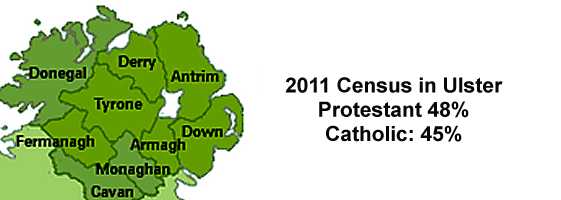
The DUP Economy Minister has stated that she held talks with First Minister Peter Robinson about calling the bluff of Sinn Fein and that any such referendum would produce an overwhelming mandate for remaining within the UK. She claims that Sinn Fein are engaged in 'fantasy politics'. This is certainly a very high stakes game. If a referendum were to be held it would doubtless be mirrored by an increase in violence, intimidation and tension within Ulster and would likely empower the more radical extremes of both Protestant and Catholic traditions. Comment on this Irish News Story at the Ireland Blog at: https://www.ireland-information.com/blog/?p=359#respond IRISH CONSTITUTION TO BE CHANGED The Convention on the Constitution Committee is meeting to make several recommendations to the Government so that the Irish Constitution can be changed. 
The Committee is made up of 66 members of the Irish public, chosen by random, with 33 politicians from various political parties and a chairman making up the 100 strong group. The first order of business they faced was whether to leave the voting age at 18 years or to lower it to 17 or 16 years. They may also vote on reducing the term of the Presidential office from 7 years to 5 years. As many as 8 constitutional amendments will be considered by the Convention including:
The work of the group represents a unique opportunity for the citizens of Ireland to have a real say in the most important of Irish legal documents. Unionist parties in Ulster were invited by Taoiseach Enda Kenny to participate in the work but declined. Sinn Fein and several other Ulster parties are represented however. Recent opinion polls suggest that the Irish people are in favour of the abolition of the Seanad (lower house of Parliament), legalising same-sex marriage, and allowing Irish citizens abroad the right to vote in Presidential elections. Comment on this Irish News Story at the Ireland Blog at: https://www.ireland-information.com/blog/?p=387#respond IRISH PROPERTY MARKET MAY REBOUND The part that the collapse in the Irish property market played in destroying the Irish economy has been well documented. The 2007 height of the market now seems like an eternity ago with prices falling by as much as 47% according to the Irish Central Statistics Office (CSO). 
The market collapsed, the banks collapsed, the economy collapsed. The EU, IMF and ECB provided loans to Ireland to keep the country running on condition that part of these loans was used to pay back bondholders in Europe, many of whom were based in Germany and France. The punitive rate of interest being charged for these loans is also the subject of ongoing negotiations between the Irish government and the European 'troika'. Nevertheless there are signs that 2012 may have marked the actual bottom of the property market. Figures from the CSO have revealed that house prices actually rose in November by 1.1%, despite showing an overall annual decline of just under 10%. The news that US bank Wells Fargo has located four senior bank officials in London for the express purpose of examining the Irish property market is a further sign that there may still be some life in the housing market in Ireland. Irish banks are very reluctant to lend at the moment to anyone other than the most financially secure. Despite their protestations it has become nearly impossible for young first-time buyers to get a mortgage and buy a property. A scenario whereby the economy recovers somewhat in tandem with the arrival of a new banking force could cause a significant upwards bounce for the ailing Irish construction industry that has always been one of the country's biggest employers. Comment on this Irish News Story at the Ireland Blog at: https://www.ireland-information.com/blog/?p=269#respond IRISH WATER TAX TO BE INTRODUCED IN 2014 A new tax on the private use of tap water is to be introduced in Ireland in 2014. This is despite the fact that most Irish homes will not have an actual water meter installed until 2016 at the earliest. A flat-rate fee will be introduced initially and will be based on the size of a property as well as the number of occupants. 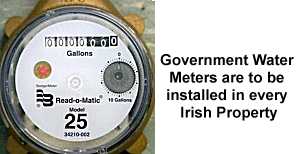
Irish businesses already pay for their water usage but private homes do not, the funding for which comes from general taxation revenue. The new plans to install a water meter in every house in the country have, like the property tax, been greeted with dismay by a population that is already groaning under the weight of a huge and increasing tax burden. It is expected that average annual usage per home would cost approximately 400 euro (approx US$530), with heavier users paying more. It is broadly accepted that there is a case for charging for water usage. Estimates put the wastage of usable water at over 50% from the country's creaking and in many cases Victorian water pipes network. Owners of rural houses usually have to sink their own well or else join a water scheme while urban houses do not have any such expense so there is a real urban/rural divide on the issue. On the other hand Taxpayers can reasonably argue that they already pay for water in their income and sales taxes and are entitled to ask just why they are being told to pay again. Comment on this Irish News Story at the Ireland Blog at: https://www.ireland-information.com/blog/?p=327#respond POTENTIAL DISASTER FOR IRELAND IF UK OPTS OUT OF EUROPEAN UNION The amount of genuine 'Euro-skepticism' that really exists in the United Kingdom is about to be put to the test. 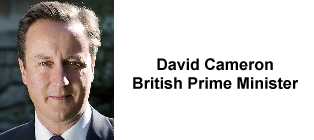
The UK has always had a vocal faction who are very unhappy with the EU. This skepticism ranges from those who want to have their London parliament retain more of its power rather than ceding ever-more to Brussels, to those who want the UK out of the European Union altogether. British Prime Minister David Cameron has announced that, should his Conservative party be re-elected, a referendum will be held in the UK by 2017. The vote will likely include a number of options and will include an option for the country to completely leave the Union. Britain previously decided to remain outside the Eurozone and retain its own Sterling currency. This proved to be a very wise decision in retrospect, given the financial devastation that the single currency has left in its wake. Had Ireland retained its own 'Irish Punt' currency and thus control of its own Central Bank then there is no way the property bubble that has wrecked the Irish economy would ever have been allowed to grow to the proportions it did. Since interest rates were set by the European Central Bank Ireland was lumbered with low interest rates, cheap loans and a voracious appetite for buying property at precisely the moment it needed it least. Ireland had 1 and 2% interest rates when it should have had 5, 6, and 7% to cool the property market. 
While these events are history now, it is with a sense of foreboding that the Irish public and politicians view the vista of our nearest neighbour and largest trading partner actually leaving the European Union completely. The effects of such a move for Ireland would be wide-reaching. Britain is the export economy upon which Ireland relies most. If trade becomes more difficult or is taxed at a higher rate then the effect on the Irish economy would be severe. It remains to be seen what the overall response will be from the British public. As David Cameron himself put it: "The biggest danger to the European Union comes not from those who advocate change, but from those who denounce new thinking as heresy. In its long history Europe has experience of heretics who turned out to have a point." Ireland is certainly feeling the pain for having ignored its own heretics who predicted doom when the country joined the Euro currency. Comment on this Irish News Story at the Ireland Blog at: https://www.ireland-information.com/blog/?p=370#respond IRISH GOVERNMENT FINALLY GETS TOUGH ON PUBLIC SERVICE PAY The 'Croke Park Agreement' is a deal between Public Service Unions and the Irish Government. It broadly states that there the Government will not implement any further cuts in pay for Public Servants in exchange for an increase in productivity and greater flexibility in respect of work practices. 
The rates of pay and conditions enjoyed by Irish public servants have been the subject of severe criticism in Ireland in the last few years, especially given the appalling state of the public finances. A successor to the Cork Park Agreement is being negotiated between the Government and Union officials with both sides taking pot-shots at each other using the media as their weapon. The latest example of such public negotiating was by the Irish Taoiseach (leader, Prime Minister) Enda Kenny. His Fine Gael Party has been criticized for allowing the continuation of the Croke Park Agreement despite the fact that the country is effectively bankrupt. Fine Gael are to a certain extent hamstrung by the fact that they are in coalition with the Labour Party who are adamantly opposed to their core membership enduring any further pay cuts. Enda Kenny has made it clear that if no agreement is forthcoming then the Irish Government will introduce legislation to enable it to reduce wages and automatic annual increments (pay rises), and to introduce a compulsory redundancy program. Such a unilateral action would cause difficulties for the Labour Party leader Eamon Gilmore who is already reeling from the criticism his Party has endured after the introduction of the annual Property Tax. He will be hoping that his Trade Union colleagues can strike a deal with his Government that will prevent such a necessity. Both Fine Gael and Labour have suffered badly in recent Irish opinion polls and it is vital that they are seen to strike a deal that is good for the country. Comment on this Irish News Story at the Ireland Blog at: https://www.ireland-information.com/blog/?p=338#respond CONCERNS FOR NUMBER OF IRISH WOMEN WHO SMOKE There has been a big increase in the number of Irish women who smoke cigarettes. One in three Irish women now smoke regularly with lung cancer now overtaking breast cancer as the main cause of cancer death among women in Ireland. 
Tobacco companies have been blamed for targeting women, depicting their products as glamorous and buying high-profile endorsements in television programs such as 'Sex in the City', among others. The desire of younger women especially to curb their weight has also led to an increase in smoking since the use of cigarettes curbs appetite. Perhaps most depressing is the statistic released by the Irish Cancer Society revealing that among women in disadvantaged or poorer sections of Irish society the rate of smoking may be a high as 50%. It is quite clear that among such groups that smoking is seen as a 'coming of age' event with children starting to smoke younger and younger. The World Health Organisation reports that smoking among men in developed countries is actually in decline yet among women smoking is on the increase. Recent WHO statistics have shown that of the near 59 Million deaths worldwide in 2004 nearly 10% were directly caused by smoking. The developing world (ie poorer countries than Western countries) account for 70% of these deaths, once again underlining the conclusion that smoking is much more prevalent among the poor. A recent Australian study revealed the following rates of smoking internationally: Afghanistan 50% Greece 39% Russia 35% India 32% Ireland 27% UK 24% Australia 18% Canada 17% USA 17% Iran 11% Comment on this Irish News Story at the Ireland Blog at: https://www.ireland-information.com/blog/?p=291#respond JUMP IN SUPPORT FOR FIANNA FAIL AS GOVERNMENT PARTIES SUFFER A recent opinion poll of Irish voters has shown a further increase in support for Fianna Fail. The party that has been blamed for the current economic downturn was pummeled in the last General Election but is now beginning to show signs of recovery. 
Perhaps part of the reason for Fianna Fail's rebound is the failure of Fine Gael to introduce a 'new kind of politics' as they promised. At the last General Election Enda Kenny's party asked Fianna Fail supporters to 'lend us your vote' while they get the country back on track. Many voters did and it seems are now regretting their decision. The poll showed Fine Gael at 29%, down 7% since the 2011 election. Fianna Fail are next at 21%, up 4% since election day. The vote for Sinn Fein is very volatile and they are currently at 16%, up by 6% from the last election. The biggest loser is the Labour Party who look certain to be severely punished for their collusion in introducing austerity budgets and a national property tax. They are currently on 13%, down by 6% since the election. 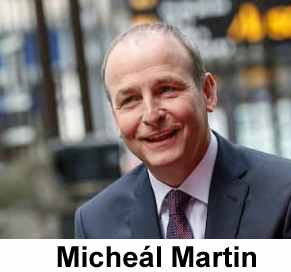
Of course it is difficult to say just how much of the Fianna Fail support is just a protest at the current government. What remains a real possibility though is that the party could at least hope to return to government in the next election, especially given the difficulties faced by the Labour Party. A year ago that seemed like a fanciful thought. Comment on this Irish News Story at the Ireland Blog at: https://www.ireland-information.com/blog/?p=294#respond 'DRINK AND DRIVE' PERMITS SOUGHT BY RURAL IRISH POLITICIAN Kerry County Councillor Danny Healy-Rae has called for a special permit to be given to rural people to allow them to visit their local pub, have a few drinks and then drive home without fear of prosecution. 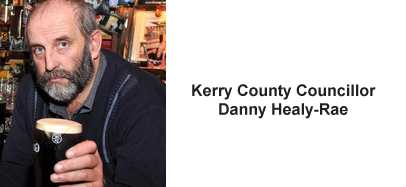
Successive Irish Governments have enabled a big crackdown on the 'drink and drive' culture over the last decade. The blood-alcohol limit has been reduced significantly on a number of occasions and there is now much greater enforcement of the laws. An Garda Siochana (Irish Police) can now breathalyse any driver in any situation - no 'please walk a straight line' test is needed. The smoking ban that was introduced in 2004 had the dual effect of curbing the use of tobacco in the workplace as well as impacting severely on the number of times Irish people would visit the pub. People chose to stay at home where they could smoke, if they wished, and also not risk a driving ban if they used their car. The result has been widespread closures of pubs across Ireland, especially in rural locations. Combine these factors with the devastating effect the recent recession and major tax hikes have had on Irish disposable income and the vista is a very bleak one for the famous Irish pub. Against this backdrop Councillor Healy-Rae has launched his campaign for the introduction of some kind of scheme to allow rural pub-goers to be allowed to have two or three pints and then drive home. He makes the case that the rural lifestyle is being decimated by the recently introduced regulations and that many country people who live on the periphery of small towns and villages, or perhaps live even more remotely, are existing in a kind of state-sponsored isolation, afraid as they are to drive to a pub and have even a single pint such is their fear of being caught and banned, or even imprisoned The chances of any success with Danny Healy-Rae's campaign are just about zero. Irish roads are a lot safer now than they were even a decade ago, both in terms of the physical infrastructure and the fact that there is a vastly reduced amount of drinking and driving being risked by the Irish citizenry. Nevertheless the Kerry Councillor has highlighted a real problem that does exist for many rural and lonely people who are unserved by public transport and unable to afford private taxis or hired transport. Many will remain in an increasing isolation and seclusion. Comment on this Irish News Story at the Ireland Blog at: https://www.ireland-information.com/blog/?p=365#respond 1916 EASTER RISING BUILDING SAVED FROM DEMOLITION The 'Save No 16 Moore Street' committee have called on the Irish Government to provide funding for the restoration of a building in Dublin City Centre that is central to the story of the Easter 1916 Rising. 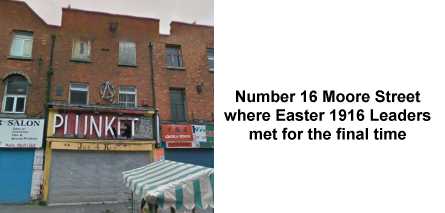
The unassuming building that is just yards from Henry Street and the GPO was the location where the leaders of the Easter 1916 Rebellion decided to surrender their arms to the overwhelming British forces that were stacked against them. The committee hopes that the building will be restored and turned into a museum in time for the 1916 centenary commemoration in three years time. The new museum would display the famous 'Proclamation of Independence' and the original letter of surrender. Plans to demolish the original building were uncovered by the Committee in 1999 who launched their successful campaign to have the demolition plans scrapped. "We have saved a lot of what's left of the 1916 Rising" a spokesperson said. The Easter 1916 Rising was a pivotal moment in Irish history. Although a military disaster for the rebels the execution of the leaders including Padraig Pearse and James Connolly swept public opinion against the British and towards the remaining rebels who instigated a War of Independence under the guidance of Michael Collins and Eamon deValera. The Anglo-Irish Treaty, the resultant Civil War and the Declaration of Independence in 1948 all trace their origin to the Easter RIsing. Free History Report about the Easter Rising Comment on this Irish News Story at the Ireland Blog at: https://www.ireland-information.com/blog/?p=376#respond NED KELLY, IRISH-AUSTRALIAN OUTLAW FINALLY LAID TO REST The infamous Irish bushranger Ned Kelly has been buried in an unmarked Australian grave some 132 years after his death. Despite being hanged in 1880 it was not until 2011 when DNA evidence from one of his living relatives was matched against bones and remains found in a derelict Melbourne Jail that any funeral could take place. For a time there was a legal wrangle over the ownership of the remains but in the end his descendants won the right to give him the Catholic burial he is said to have wanted. A crowd of over 500 people turned up to witness the final journey for the Australian legend, despite pleas for privacy from the Kelly family. 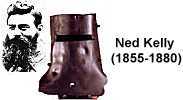
Opinion on the legacy of Ned Kelly has always been divided. His crimes in the 1800's include various armed robberies and murders. He was eventually hanged after his gang was convicted of killing three police officers who were pursuing the renegades. While police authorities have always maintained that Ned Kelly was merely a criminal it is without question that he was also a symbol of rebellion by the poorer particularly Irish immigrants against the Anglo-Australian authorities who ruled in nineteenth century Australia. 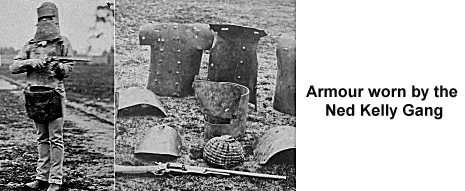
The final showdown took place at Glenrowan on 28th June 1880. Kelly wore his home-made metal armour (an image that has become synonymous with him) but was captured and put on trial. He had earlier written an 8000 word letter explaining how circumstances had forced him into a life of crime by situations over which he had no control. The letter was later used against him in court. Ned Kelly was hanged in November 1880. His last words were 'Such is life'. Comment on this Irish News Story at the Ireland Blog at: https://www.ireland-information.com/blog/?p=352#respond |
|
KEEP THIS NEWSLETTER ALIVE! Free Mount with ALL Family Crest Prints, Framed or Unframed 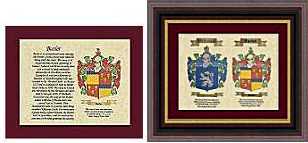
Order from Here |
View the Gallery of Irish Coats of Arms here:
http://www.irishsurnames.com/coatsofarms/gm.htm
THE PERFECT WEDDING, ANNIVERSARY OR BIRTHDAY GIFT!
We now have over 100,000 worldwide names available.
Get the Coat of Arms Print, Claddagh Ring,
Screensaver, Watch, T-Shirt Transfer or Clock for
your name at:
https://www.irishnation.com/familycrestgifts.htm
==========================================
IRELAND'S MOST POPULAR TOURIST ATTRACTIONS
==========================================
|
FREE ATTRACTION #7: NATIONAL MUSEUM OF IRELAND - NATURAL HISTORY, DUBLIN
The Natural History Museum of Ireland is located on Merrion Street, just yards from the National Gallery of Ireland and right in the heart of Dublin City Centre. The museum is sometimes unflatteringly referred to as the 'Dead Zoo', housing as it does 10,000 exhibits of wildlife and creatures of every imaginable variety. The 'Irish Room' on the ground floor of the museum houses those species that are found in Ireland, including a reconstructed skeleton of an Irish deer with an antler span of 3.5 metres. The Discovery Zone in the Museum allows visitors to handle and examine a badger and whale skull and is a good place to bring kids as their attention span begins to wane! 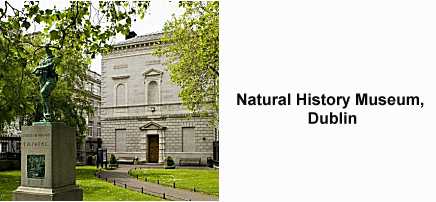
The Museum is certain to appeal to children more than some of the other Museums in Dublin, (for example the National Gallery). It is in a great location and is adjacent to Merrion Square that is great for a stroll and houses a small playground. St. Stephens Green is just a couple of minutes walk away and boasts a much bigger playground so this part of Dublin should be considered if you have kids in tow! Find out more here: http://www.museum.ie/en/intro/natural-history.aspx FEE-PAYING ATTRACTION #7: ST. PATRICK'S CATHEDRAL, DUBLIN Saint Patrick's Cathedral is the National Cathedral of the Church of Ireland (Anglican). It is located on St. Patrick's Close near Kevin Street. It is a straightforward 10 to 15 minute walk from St. Stephens Green. The Cathedral is located beside the Well where legend has it that Saint Patrick used to conduct baptisms during his visits to Dublin. The buildings date from the twelfth century and the Cathedral is the largest Church in Ireland with a 43 metre spire. It is very unusual for a city to have two Cathedrals with Christ CHurch Cathedral located nearby. 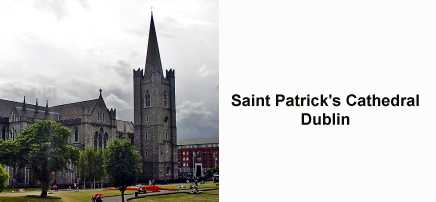
The famous 'Door of Reconciliation' from 1492 which gave rise to the expression 'chancing your arm' and 'chancer' is located in the Cathedral's north transept. The Choir stalls of Saint Patrick's Cathedral once served as a Chapel to 'The Most Illustrious Order of the Knights of Saint Patrick'. This organisation was founded by King George III of England in 1783. It was an order of chivalry and the title of "Knight of the Order" was given to its members. The Organ of St. Patrick's Cathedral is one of the largest in Ireland with over 4,000 pipes. Free Guided tours are offered at various times during the year - find out more at: http://www.stpatrickscathedral.ie Nearby Marsh Library is Ireland's first ever public library. |
=================================================
GRANDMA'S GRAMOPHONE - A STORY BY MICHAEL COLLINS
=================================================
|
The wheelchair was uncomfortable and the retirement home smelt musty. Martin settled himself into the seat as best he could, trying to find the most favourable position for his withered and bony bottom and thighs. Ahead of him stretched another long day of inactivity. Since the stroke had paralysed his body but had left his mind intact he had had a long string of such days. Make the best of it, he thought. Use your mind. Think long and hard of good things and bad things. Spin the day out. So what's today's story that I'm going to re-tell myself? What about the inheritance I never had? That's the one. He started to call up memories...
February was always cold. Outside, on that early morning in 1954, it had been damp and bone-chilling. Martin ran the four hundred yards through the mist to the phone box. He never walked when he could run, never ran when he could sprint. His Dad had got him out of bed while his nose was just about sticking out from under the counterpane, the ice flowers thick on the bedroom window. He emerged from the warm covers reluctantly, washed and dressed briefly. Downstairs he found his father doing what Martin himself most enjoyed doing in the morning: laying the fire in the tiny grate. His father hushed his protests: 'I know,” and pressed two pennies into his hand, 'but I want you to run to the phone to find out how your Grandma is.” 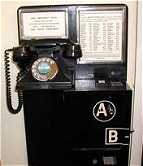
Inside the red phone box he got his breath back. Lift the receiver and insert two pennies. Dial the number. 'Hello. Warburton Hospital', said a voice. He pressed button A. 'Hello. Could you please tell me how Mrs Cotton is, ward sixteen?' Unexpectedly the speaker asked who was making the enquiry. The lad stammered, explaining that he was her grandson and that, er, my Dad had asked me to call... His voice trailed off. 'Just a second son', said the friendly voice. 'I'll try to find out.' He hoped that his two pennies would last. The voice asked him if he was still there. He confirmed his presence. 'And how old are you?' 'Almost fourteen.' 'Then you'll have to be a brave lad. I'm afraid your gran died in the night. Can you tell your Dad to phone us immediately?' He started to shiver. He would have to tell his Dad that his Mum had died. He was still trembling with apprehension when the kindly voiced asked him again if he was still on the line. He nodded silently, then realised how stupid that was, glad that nobody could see him do something so daft. He answered quietly that he was still there. 'Did you understand what I said?' 'You said my Grandma had died, didn't you?' 'I'm afraid so, yes.' He replaced the receiver, feeling as cold and dark within as the morning without. Time was getting on. He had to catch the bus to school, but he trudged home unwillingly, shivering inside and out. He had no key to the front door so he just stood there, paralysed and scared to knock. But his Dad had heard him coming. The door swung open. 'What...' he began to say. Then he saw the lad's face. He put an arm around his shoulder. 'Come on in, son. The tea's brewed and I've got some toast going.' They sat at the table with their tea and toast and jam. 'She's dead, isn't she.' It was a statement, not a question. The boy nodded. 'It's not your fault, son. Drink your cuppa and get some toast down you. Then you can get off to school. I'll take the day off and get things seen to.' He had remembered very little of the rest of the week except that he started having thoughts that made him feel guilty. Now he would get Grandma's gramophone and the Paul Robeson records. And one of his sisters would probably get the treadle sewing machine. There also seemed to be some tension between Mum and Dad. Not a row: they never rowed. Just something they couldn't talk to the kids about. They never had done, though he had been aware of tensions in that area from an early age. Kids feel it, pick it up as if they have a sensitive antenna. Grandma Cotton had come across to the grandchildren as an embittered old lady with a sharp tongue. Sunday afternoon visits to her had been no fun, except that she allowed Martin to play her old records on her wind-up gramophone. They didn't have one at home but even then he had been crazy about music. And having no concept of how the sound was produced he had invented a fantasy world in which the gramophone sent out a secret message to the singer who would then perform for him alone. Only faint twinges of doubt arose when he had learned that some of the performers were dead. Anyway, Grandma was now to be buried and he would get the gramophone she had always promised him. After the funeral they had gone home in an unaccustomed taxi. Mum brewed tea and made some sandwiches. They all ate in silence for a while. Then, emboldened by the fact that his Dad had, after all, not been mad at him when he had told him his Mum was dead, he asked the question that had been burning in his mind since that cold morning a week before. 'Can I have Grandma's gramophone now she's dead?' Mum and Dad exchanged quick glances. Dad had looked at him and said quietly: 'I'm sorry, son, but the gramophone's gone.' 'Gone? Where to? Who's got it?' his questions tumbled out in a fluster. 'It's a bit difficult to explain', he replied, again quietly, but gave no further explanation. 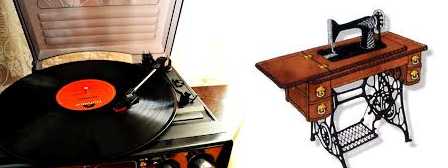
The lad thought he had got the message. He had asked the wrong question. His wish had been grossly out of order. He should have been grieving for a lost Grandma and here he was moaning about a stupid gramophone. The years passed. Dead Grandma Cotton was scarcely mentioned, if at all. He had grown up, become what he considered to be a man, and had thought no more about his Grandma's gramophone. Except once when, in the attic of a building he had been working in, he discovered exactly the same type of gramophone that Grandma had promised him. He knew he should have taken it. Nobody else was interested and it would have helped clear up the attic. But he had missed his chance: when he went back it was gone. A bit like when you see a really good bargain on the market and decide to buy it the next day. And when you go back not only has the bargain gone but the stall is no more. Then his Dad died when Martin was thirty-two. Martin was helping his grieving and confused mother to contact family and friends and asked her the whereabouts of Uncle Jack, his Dad's older brother. Martin had never heard Jack's name mentioned since Grandma's funeral and, indeed, not much before that because, he understood, Jack was 'a right bad lot'. In a strangely distant tone of voice his Mum said she had no idea, so Martin rang his brother-in-law, a policeman, and asked him to make enquires. Uncle Jack had disappeared. Some months after his father's funeral Martin was visiting his mother and she told him a sad story. When Grandma Cotton had died, Jack had got wind of it before Dad, had gone to their mother's house, emptied the place and sold everything in record time. He had subsequently refused to pay any share of the funeral expenses and left Martin's father, not a rich man, with a large bill to pay. The gramophone (and the treadle sewing machine) had disappeared off to some auction house and Uncle Jack was a few quid richer. Later, now that Dad was dead, Martin's mother told him some more stories that went a long way to explaining the family tensions. Jack had been his mother's favourite, although he did things Grandma Cotton could not possibly have approved of. Grandma had not favoured Martin's Dad, even though he was a model husband and father. She even disliked Martin and his sisters, her grandchildren, to some extent. Mum went on to tell some horror stories about Grandma's husband, who had died five years before Martin was born: an extremely heavy drinker, he had beaten his wife and family on a regular basis. There were even more horror stories about Grandma's heroic struggle for existence in the poverty-stricken 1930s. Mum's parents had disapproved of their only daughter marrying Dad, coming as he did from a family that would nowadays be regarded as fundamentally dysfunctional. The two sets of grandparents never exchanged a word though they attended the same church and their houses were a mere hundred yards apart. Sixteen years later, when his mother had told a fairly tenuous string of stories about half-remembered events in the past, she finally was laid to rest herself and Martin began to make what investigations he could. It turned out to have been like this. His Dad's parents had been as unlike as one could imagine. Grandma had been a quiet, gentle, working-class English girl from the slums of Manchester. Grandpa had been a heavy-fisted, hard-drinking, illiterate labourer, son of a small farmer in the far west of Ireland. He had beaten his wife and the eldest son (Jack) constantly, so much so that the boy had been removed from the family for some time. After losing three children, two severely mentally handicapped, and having endured at least five years, if not more, of constant thrashings, Grandma Cotton had thrown her husband out of the house, despite the pleas of the local parish priest, and had further earned her bread and butter taking in washing. Jack's character had been set in the context of a violent household dominated by drink. Not knowing anything different, Jack took whatever he could whenever he could. Jack was cynical. Jack was mean. Jack was a survivor. And Jack had seen his mother's death as a means of earning a quick penny. In doing so he had removed from the grandchildren's minds the only potential memory that could have erased the real memories they had of Grandma Cotton as an embittered and sharp-tongued old lady. Twelve months previously Martin had learned in a roundabout way that Uncle Jack had died of cancer in far-off Australia some years before. The passage of time had removed any childhood bad feelings from his adult mind and Grandma's gramophone had long been compensated for by a hi-fi system, modern turntable, mini-disc player, CD player... And any rancor he had felt towards Uncle Jack had been wiped away with the years. But he knew one thing, and contemplated the prospect greedily as he sat slumped in the wheelchair: if there was a hereafter and Jack and he ended up in the same place, his first questions to Jack would be: 'What did you do with Grandma's gramophone? And why?' Michael Collins |
KEEP THIS NEWSLETTER ALIVE!
Solve your gift problem at: https://www.irishnation.com


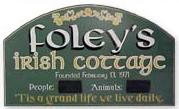
|
==================================== AN INCREDIBLE JOURNEY: SULLIVAN FAMILY HONORS SON OF IRELAND by Johnny Letlow ==================================== On November 10th, 2012 members of the Sullivan family met in West Monroe, Louisiana to honor Confederate Soldier, Michael Sullivan. In attendance were around 85 descendants as well as the Sons of Confederate Veterans. A permanent tombstone was placed at his grave site. Irish, American, and Confederate flags were placed on his grave. For this special event, a special Sullivan Irish Flag was purchased from his homeland. 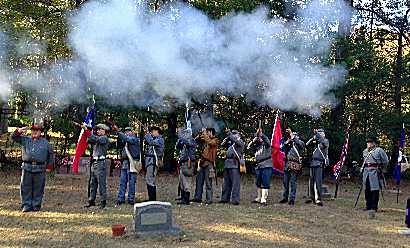
Michael had an incredible journey. There is no doubt that he was Irish. He was born in Dublin or possibly London around the year 1825. By the time he was 8 years old, both of his parents were dead. At that young age, Michael stowed away on a ship and came to America. He probably landed on the East Coast but made his way to Ouachita Parish in the hill country of North Louisiana. He became a farm laborer and lived with a family by the name of Ellis. In 1861 the American Civil war began. Michael quickly joined the Ouachita Blues of the Confederate army. He left his home again and would not return for 4 years. His unit was sent to Richmond, Virginia and served as bodyguards for Jefferson Davis, the Confederate President. They also were guards at the infamous Libby Prison. He fought at the first battle of Bull Run just outside of Washington. His unit fought in battles at Charleston, Wilmington, and Savannah - and he survived. In Vicksburg, Mississippi, his unit held out until the city was captured. At that time Michael was taken as a prisoner of war. For the next two years he would live in the hell-hole of Camp Morton, Indiana. Soldiers were offered release for an oath not to fight against the Union but they said it was doubtful that Michael would keep the oath and kept him in captivity. The conditions in prison were unspeakable but Michael survived. When the war was over in 1865 he was released and walked to Louisiana around 800 miles away. In a war that saw 600,000 Americans die (probably many more) Michael Sullivan had somehow survived. After the war he married a widow by the name of Laura Brown. Her husband was killed during the war. He became a tenant farmer and his wealth was listed at $310. 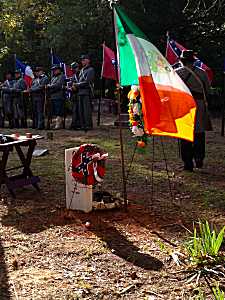
By 1871 Michael went to the local courthouse and renounced his allegiance to Queen Victoria. After crossing a great ocean, fighting in a great war and surviving, Michael was now a full American citizen. He was even chosen for jury duty in Ouachita Parish. His fortunes improved. The United states began a land lottery. Michael received a land grant for 40 acres. It is located just a short walk from his burial site. So in 2012 Michael Sullivan was honored by his descendants as an Irishman, a Confederate soldier, and an American citizen. When the ceremony was over, the small children that were present placed small flags on his grave. His only son Graton is the ancestor of the group that honored him. Johnny Letlow |
KEEP THIS NEWSLETTER ALIVE!

Get Your Family Crest Flag at:
https://www.irishnation.com/familycrestflags.htm
==============================
YOUTUBE VIDEOS OF IRISH INTEREST
==============================
You can view our archive of Videos of Irish interest here:
https://www.ireland-information.com/irishvideos.htm
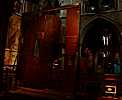
'Chancing Your Arm' - Saint Patrick's Cathedral

Moore Street 1916 Museum

Natural History Museum, Dublin
KEEP THIS NEWSLETTER ALIVE!
Get Great Family Crest Gifts at:
===========================
GAELIC PHRASES OF THE MONTH
===========================
PHRASE: Fainne oir ort!
PRONOUNCED: fawn-yeh ore urt
MEANING: A gold ring on you
(Bravo! or Well Done!)
PHRASE: Go dte tu an cead
PRONOUNCED: guh day two on kade
MEANING: May you live to be 100
PHRASE: Go maire tu!
PRONOUNCED: guh mire-ehh two
MEANING: May you live
(Congratulations! or Live long!)
View the archive of phrases here:
https://www.ireland-information.com/irishphrases.htm
==================
COMPETITION RESULT
==================
The winner was: hhughes2@centurytel.net
who will receive the following:
A Single Family Crest Print
(US$19.99 value)

Send us an email to claim your print, and well done!
Remember that all subscribers to this
newsletter are automatically entered into the
competition every time.
I hope that you have enjoyed this issue.
Until next month,

Michael Green,
Editor,
The Information about Ireland Site.
https://www.ireland-information.com
Click here to contact us
PLEASE 'LIKE US' ON FACEBOOK!
KEEP THIS NEWSLETTER ALIVE! Visit https://www.irishnation.com